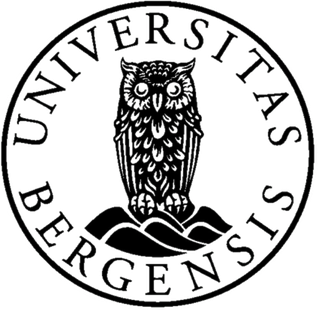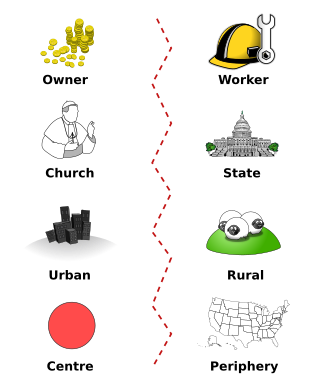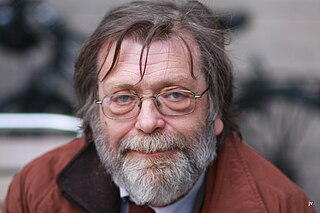
The University of Bergen is a public research university located in Bergen, Norway. As of 2021, the university has over 4,000 employees and 19,000 students. It was established by an act of parliament in 1946 based on several older scientific institutions dating back to 1825, and is Norway's second-oldest university. It is considered one of Norway's four "established universities" and has faculties and programmes in all the fields of a classical university including fields that are traditionally reserved by law for established universities, including medicine and law. It is also one of Norway's leading universities in many natural sciences, including marine research and climate research. It is consistently ranked in the top one percentage among the world's universities, usually among the best 200 universities and among the best 10 or 50 universities worldwide in some fields such as earth and marine sciences. It is part of the Coimbra Group and of the U5 group of Norway's oldest and highest ranked universities.

Comparative politics is a field in political science characterized either by the use of the comparative method or other empirical methods to explore politics both within and between countries. Substantively, this can include questions relating to political institutions, political behavior, conflict, and the causes and consequences of economic development. When applied to specific fields of study, comparative politics may be referred to by other names, such as comparative government.

Barrington Moore Jr. was an American political sociologist, and the son of forester Barrington Moore.

Seymour Martin Lipset was an American sociologist and political scientist. He was the president of the American Political Science Association. His major work was in the fields of political sociology, trade union organization, social stratification, public opinion, and the sociology of intellectual life. He also wrote extensively about the conditions for democracy in comparative perspective. A socialist in his early life, Lipset later moved to the right, and was considered to be one of the first neoconservatives.
Stein Rokkan was a Norwegian political scientist and sociologist. He was the first professor of sociology at the University of Bergen and a principal founder of the discipline of comparative politics. He founded the multidisciplinary Department of Sociology at the University of Bergen, which encompassed sociology, economics and political science and which had a key role in the postwar development of the social sciences in Norway.
The International Political Science Association (IPSA), founded under the auspices of UNESCO in 1949, is an international scholarly association. IPSA is devoted to the advancement of political science in all parts of the world. During its history it has helped build bridges between East and West, North and South, and has promoted collaboration between scholars in both established and emerging democracies. Its aim is to create a global political science community in which all can participate, most recently it has been extending its reach in Eastern Europe and Latin America. IPSA has consultative status with the Economic and Social Council of the United Nations (ECOSOC) and it is a member of the International Science Council, which brings together over 230 science organizations across the world and actively cooperates with partners from the United Nations system, such as the United Nations Environment Programme (UNEP), the World Health Organization (WHO), and the United Nations Development Programme (UNDP).
The International Social Science Council (ISSC) was an international non-governmental organization promoting the social sciences, including the economic and behavioural sciences. It was founded in Paris, France between 6 and 9 October 1952, under the auspices of UNESCO, following a Resolution at the 6th UNESCO General Conference in 1951. It was adopted on 19 September 1972, completed and revised on 14 November 1979, and underwent multiple revisions on 17 December 1985, 3 December 1992, 27 November 1998, 8 November 2006, and finally 10 December 2010. ISSC was registered in accordance with French Law.
The European Consortium for Political Research (ECPR) is a scholarly association that supports and encourages the training, research and cross-national cooperation of many thousands of academics and graduate students specialising in political science and all its sub-disciplines. ECPR membership is institutional rather than individual and, at its inception in 1970, comprised eight members. Membership has now grown to encompass more than 350 institutions throughout Europe, with associate members spread around the world.
Just Faaland was a Norwegian political economist. He started as an economist with OEEC in 1949. Later he worked for a number of international institutions including the World Bank, ILO, IFAD, FAO, WFP, UNDP, and the Asian Development Bank. Faaland was based as a development researcher at the Chr. Michelsen Institute (CMI) from 1952 to 2017. With the political scientist Stein Rokkan he initiated and developed broader research programmes and employed more people in the 1950s and in 1961 they defined research programs in international economics and comparative politics. In 1965, the Development Action and Research Programme (DERAP), a development economics project on growth problems in developing countries was formally established. In the early 1980s, Faaland established a human rights programme which soon grew to become the other main focus of CMI's social science research.

In political science and sociology, a cleavage is a historically determined social or cultural line which divides citizens within a society into groups with differing political interests, resulting in political conflict among these groups. Social or cultural cleavages thus become political cleavages once they get politicized as such. Cleavage theory accordingly argues that political cleavages predominantly determine a country's party system as well as the individual voting behavior of citizens, dividing them into voting blocs. It is distinct from other common political theories on voting behavior in the sense that it focuses on aggregate and structural patterns instead of individual voting behaviors.

Frank Henrik Aarebrot was a Norwegian political scientist, political commentator, and professor of comparative politics. Among the most quoted and popular academics in the Norwegian press, he became better known during his later years for his televised "marathon lectures" and his recurring role in coverage of national and international elections on Norwegian television.
The Stein Rokkan Prize for Comparative Social Science Research is an academic honour awarded by the International Science Council, the University of Bergen and the European Consortium for Political Research, in memory of the political scientist and sociologist Stein Rokkan. It is awarded to scholars making "a very substantial and original contribution in comparative social science research". These contributions can be in the form of book-length, unpublished manuscripts, published books, or collections of works published no more than two years prior to the award year. The prize is awarded annually and is worth $5000.
Peter Flora is an Austrian citizen and taught until his retirement in spring 2009 as a professor of sociology at the University of Mannheim. Peter Flora is a son of the Austrian drawer, caricaturist, graphic artist and illustrator Paul Flora.
Stein Kuhnle is a Norwegian political scientist.
The Stein Rokkan Memorial Lecture is an annual lecture which is arranged by the Department of Comparative Politics at the University of Bergen, Norway. Since 2002, the organising of the lecture has been in cooperation with the UNI Rokkan Centre. The purpose of the lecture is to draw attention to some of the most outstanding exponents of Stein Rokkan’s fields of research; first and foremost political science, sociology and comparative politics.
Dorothee Bohle is a German political scientist and professor at the European University Institute in Florence. Her work focuses on international political economy, European integration and eastward enlargement, as well as transformation processes in Central and Eastern Europe. She won the 2013 Stein Rokkan Prize for Comparative Social Science Research for her book Capitalist Diversity on Europe's Periphery.
Jens Alber is a German sociologist and political scientist. He was awarded the 1983 Stein Rokkan Prize for Comparative Social Science Research.
Critical juncture theory focuses on critical junctures, i.e., large, rapid, discontinuous changes, and the long-term causal effect or historical legacy of these changes. Critical junctures are turning points that alter the course of evolution of some entity. Critical juncture theory seeks to explain both (1) the historical origin and maintenance of social order, and (2) the occurrence of social change through sudden, big leaps.
Ran Hirschl is a political scientist and comparative legal scholar. He is the David R. Cameron Distinguished Professor of Law and Politics at the University of Toronto. Previously, he held the Canada Research Chair in Constitutionalism, Democracy and Development at the University of Toronto. He is the author of several major books and over one hundred and fifty articles on constitutional law and its intersection with comparative politics and society. In 2014, he was elected a Fellow of the Royal Society of Canada. In 2021, he was awarded the Stein Rokkan Prize for Comparative Social Science Research for his book City, State: Constitutionalism and the Megacity.

Daniele Caramani is a comparative political scientist.







